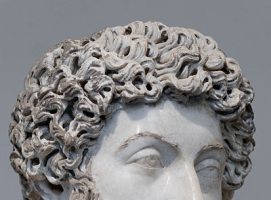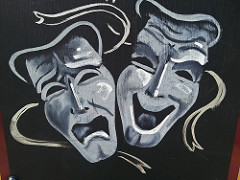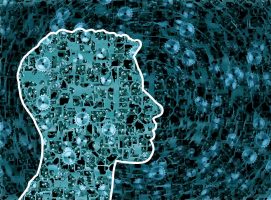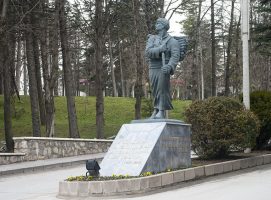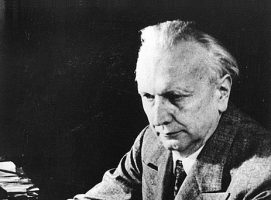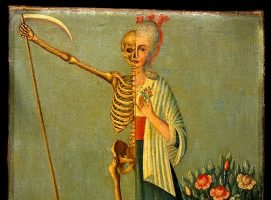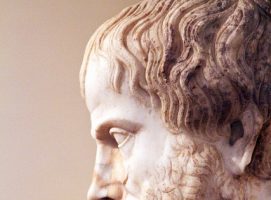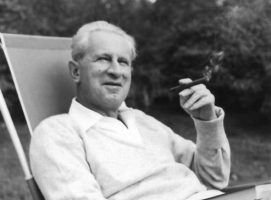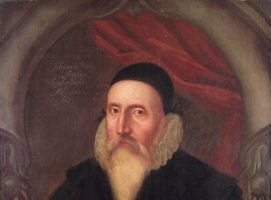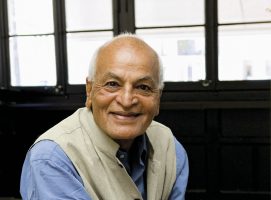Showing 59 articles
A Stoic guide to our Emotions – Pt. 2: The sentiments of the sage
Author: Gilad SommerDecember 16, 2017
Despite the popular conception of the Stoics, in their writings, the ideal sage is not portrayed as a cold, apathetic person. By reflecting on the good and the bad, and on the true nature of things, the sage develops natural, rational sentiments – Hai Eupatheiai, literally, the good passions. These are: Wish, Caution and Joy. [...]A Stoic guide to our Emotions – Pt. 1: Can we trust our feelings?
Author: Gilad SommerDecember 16, 2017
Human beings are often said to be rational creatures, but in reality we are very much emotional creatures as well. More often than not, history is a showcase of tragic actions taken by human beings overcome by their passions. And apart from these grand-scale dramas, our everyday life is full of instances where the right [...]The Dawn and Decline of Technological Man
Author: Jorge Angel LivragaNovember 1, 2017
How important has technology been to the development of Humanity? By definition, technology relates to the means by which man attempts to rule over matter. However, technical elements alone are not enough to measure progress. Today we find ourselves engaged in a cult to technology, such that we judge the quality and excellence of civilizations [...]Yunus Emre, a Sufi Poet from Anatolia
Author: Pinar AkhanOctober 19, 2017
It is said that anyone in Turkey – even the illiterate – will have heard of Yunus Emre. Although he is not as popular here as he is in Turkey, the new TV series “Yunus Emre” is one of the attempts to make him known in the English-speaking world. What made him famous was not [...]Philosophy as a Way of Life
Author: Julian ScottOctober 19, 2017
The other day I heard a memorable phrase from the mouth of a Yorkshire farmer: “Farming is a way of life.” And it occurred to me that anything which is done properly must be a way of life. The same is true of philosophy. “Generally speaking, university philosophy is mere fencing in front of a [...]More than Melody – Boethius’ Music of the Spheres
Author: Siobhan FarrarAugust 27, 2017
The Music of the Spheres begins in Ancient Greece with Pythagoras who, upon passing a blacksmiths is said to have heard consonance in the different sounds of the hammer. By this he was inspired to discover the connection between vibration, frequencies and pitch. For Pythagoras the octave ratio of 1:2 is considered a symbol of [...]Karl Jaspers: Philosopher of Otherness
Author:August 16, 2017
The biography of Karl Jaspers gives an indication of the immense scope of his work. He began by studying law, then moved on to medicine, becoming a doctor specialising in psychiatry, and finally ended up as a professor of philosophy at the University of Heidelberg. One of his first works was entitled Psychology of [...]A New Philosophy of Life and Death
Author: Julian ScottApril 17, 2017
Life and death, like all opposites, are simply two sides of the same coin. As J.A. Livraga says in his book Thebes, in reality there is “only One Life, which glides along on its two feet, life and death.” Sometimes life is manifest, visible. At other times it is unmanifest, invisible. A tangible image of [...]Aristotle – the Ethics of Happiness
Author: Julian ScottFebruary 7, 2017
One of Aristotle’s most famous works is his Nicomachean Ethics, so called because the work was edited by Aristotle’s son Nicomachus. It is a curious fact that none of Aristotle’s surviving works were directly written by him. They are all compilations from his lecture notes, edited by his various students. This accounts for their often [...]Living in a One-Dimensional World
Author: Istvan OrbanFebruary 7, 2017
Ken Loach’s latest film – I, Daniel Blake – has received mixed reviews and has given rise to a lot of debate. One of the key elements of the film is how the benefits system in the UK places people in a humiliating and depressing situation, where they are no longer individuals but just claimants, [...]John Dee – Magician, Mathematician and Angelologist
Author: Julian ScottNovember 12, 2016
Earlier this year a remarkable exhibition was shown at the Royal College of Physicians in Regent’s Park, London: Scholar, courtier, magician: the lost library of John Dee. Born in 1527, of Welsh ancestry, John Dee was one of Tudor England’s most extraordinary and enigmatic figures. A brilliant mathematician, he was offered the chair of mathematics [...]Soil, Soul, Society – Rendezvous with Satish Kumar
Author: Manjula NanavatiSeptember 23, 2016
Activist, Author, Academic. Environmentalist, Humanist, Visionary. Satish Kumar believes that the spiritual aspect of our ecosystem has been lost in modern environmental debates, and has been replaced by systemic violence; towards the land, animals, mankind, and even towards ourselves. He maintains that reverence for nature is the only thread that can mend and weave together [...]